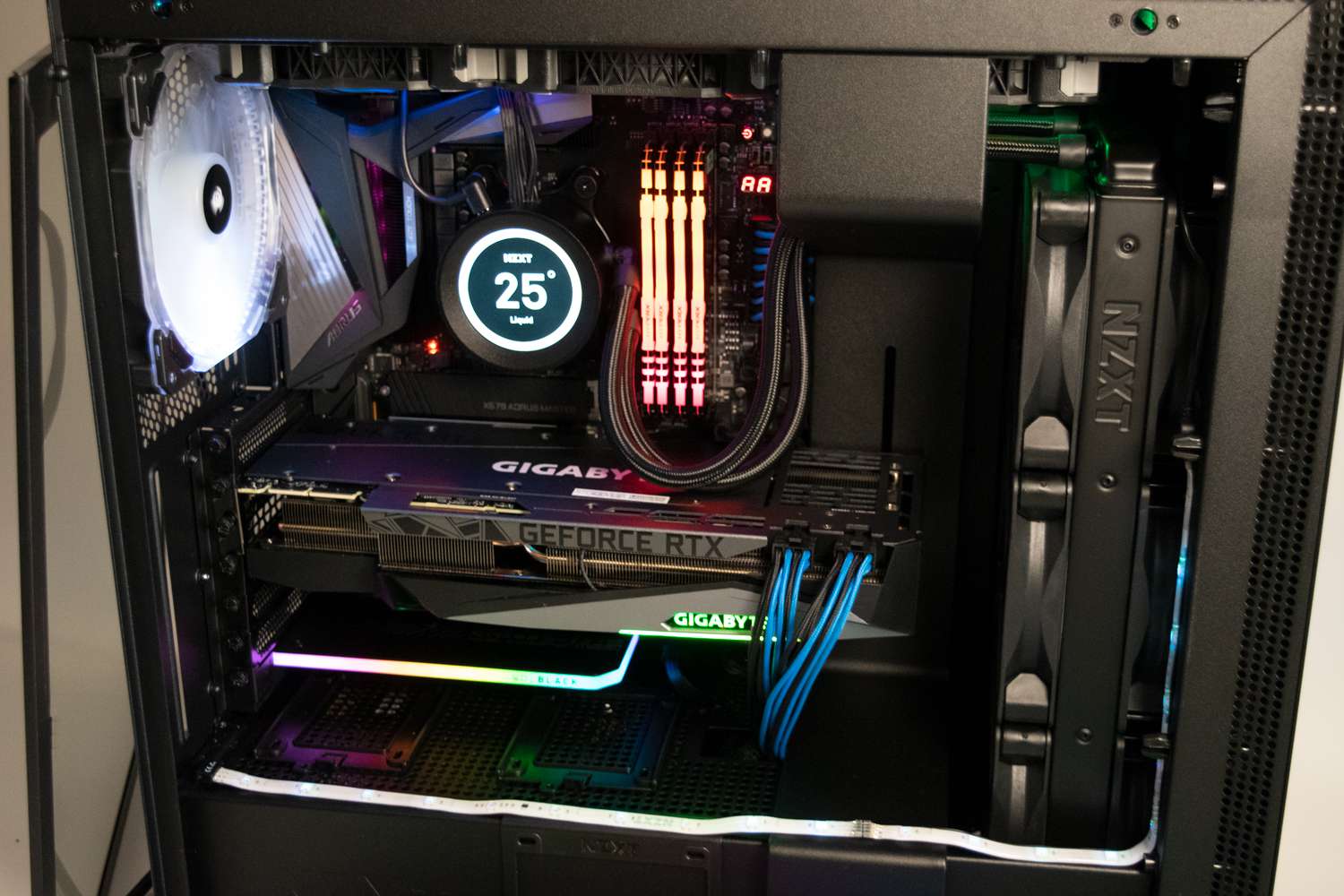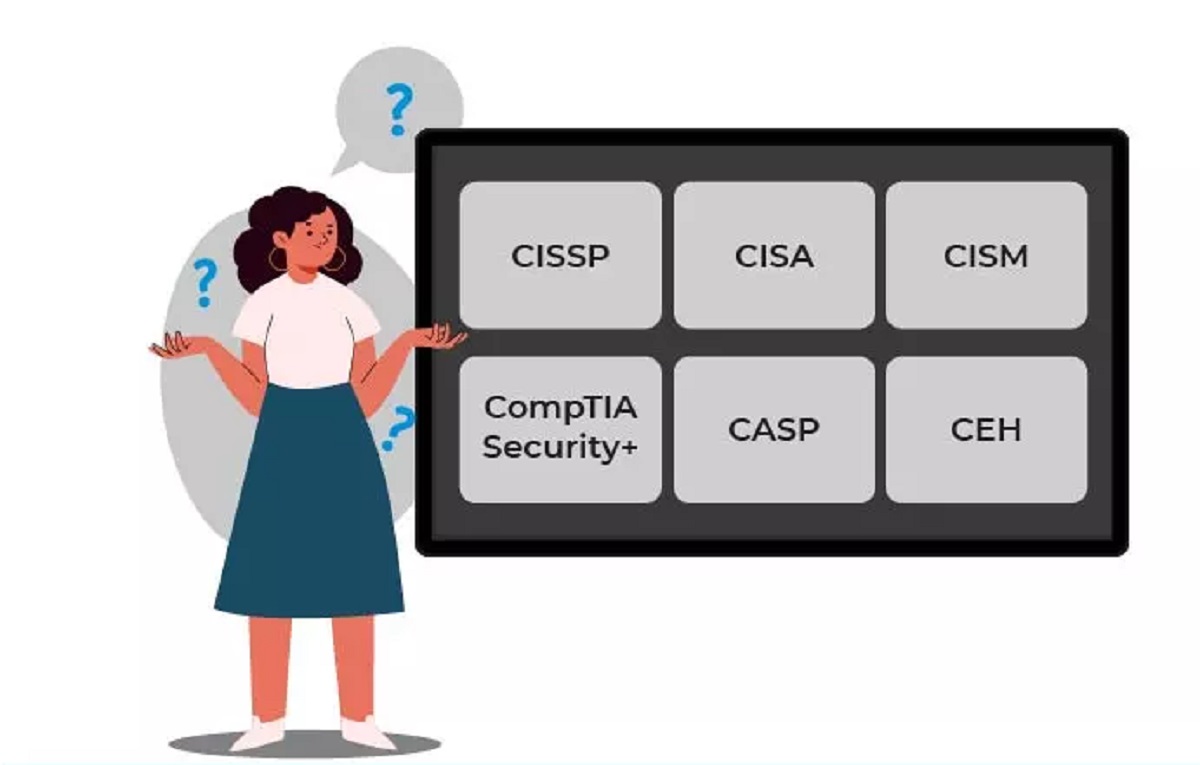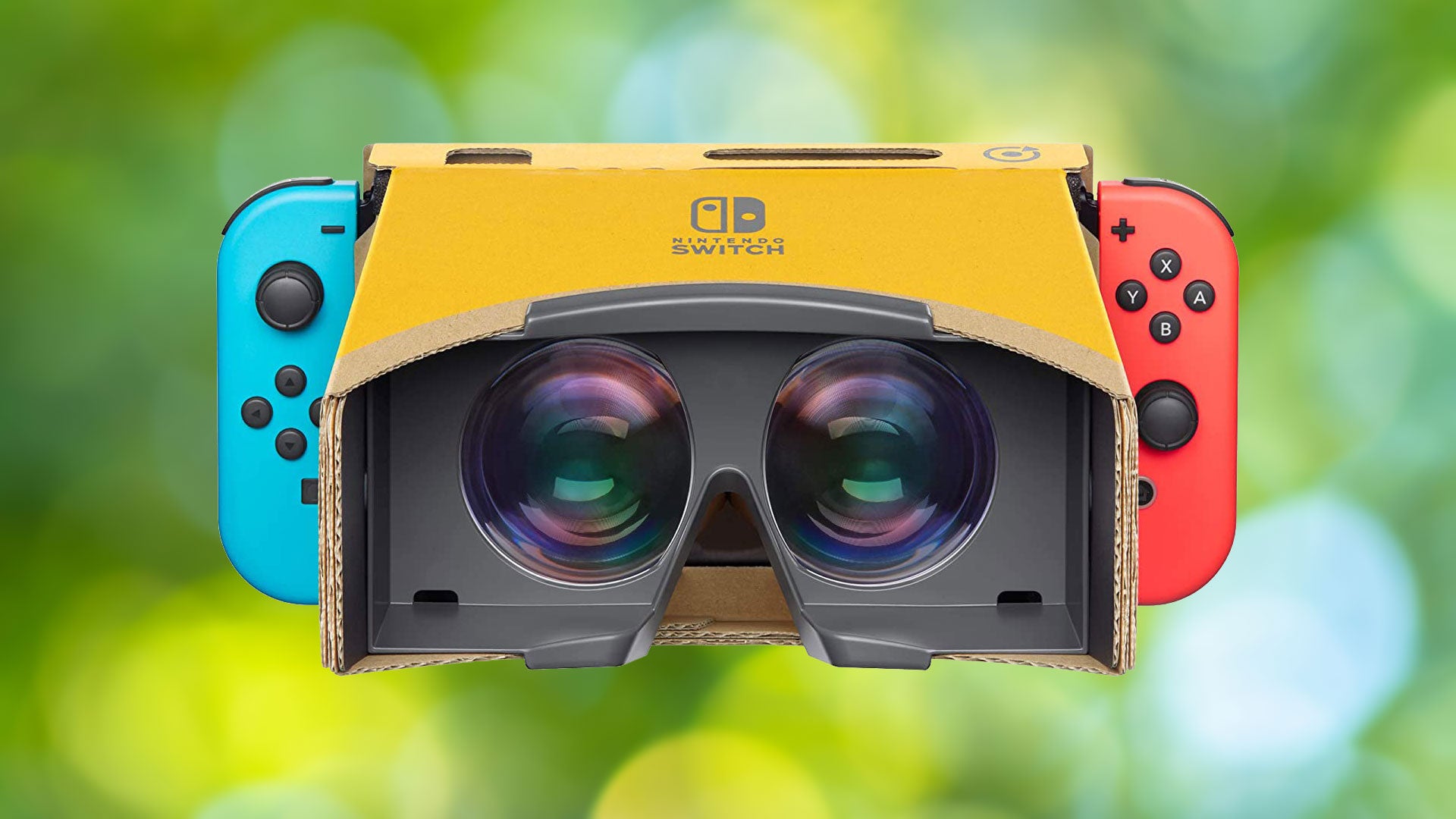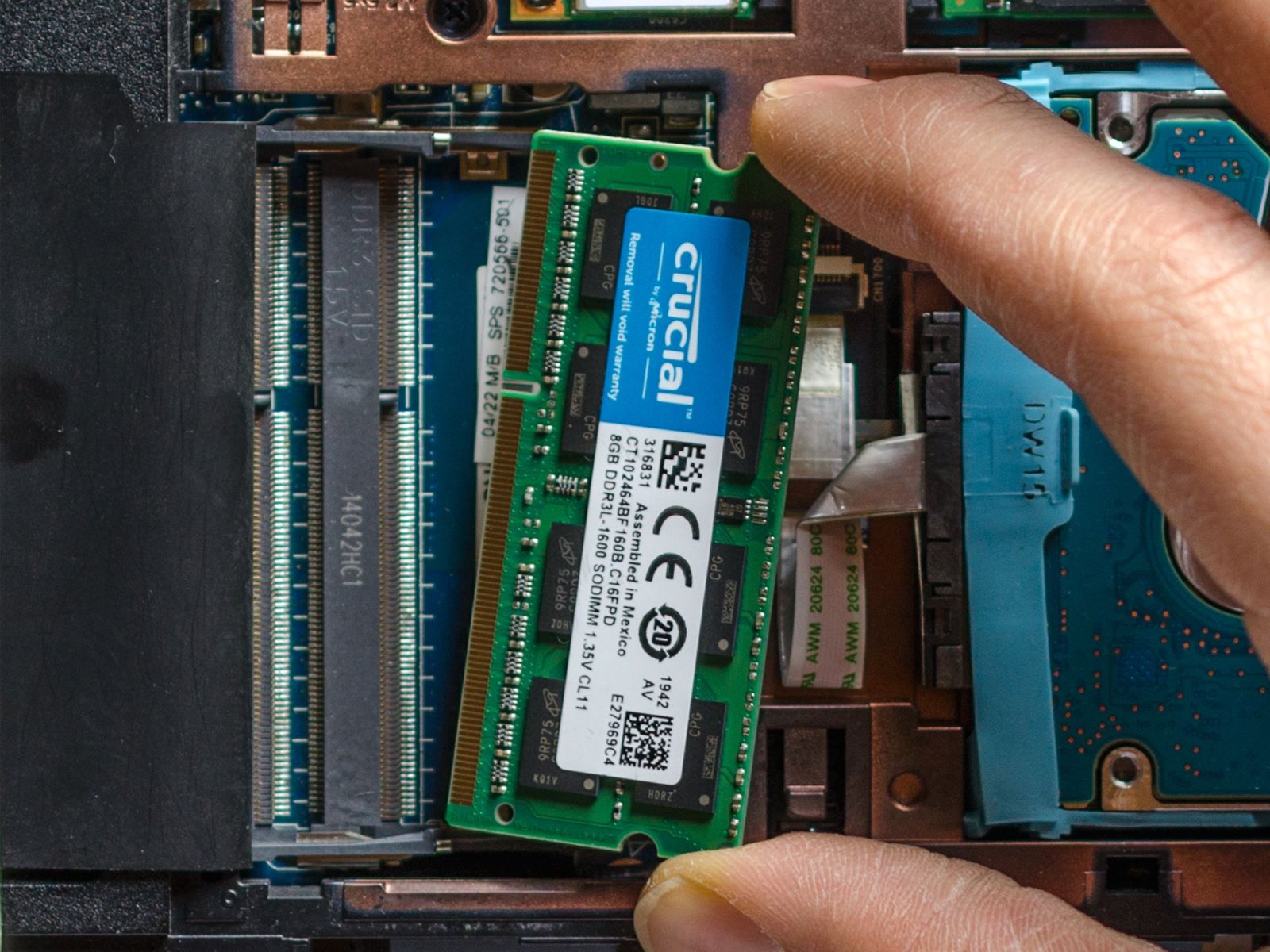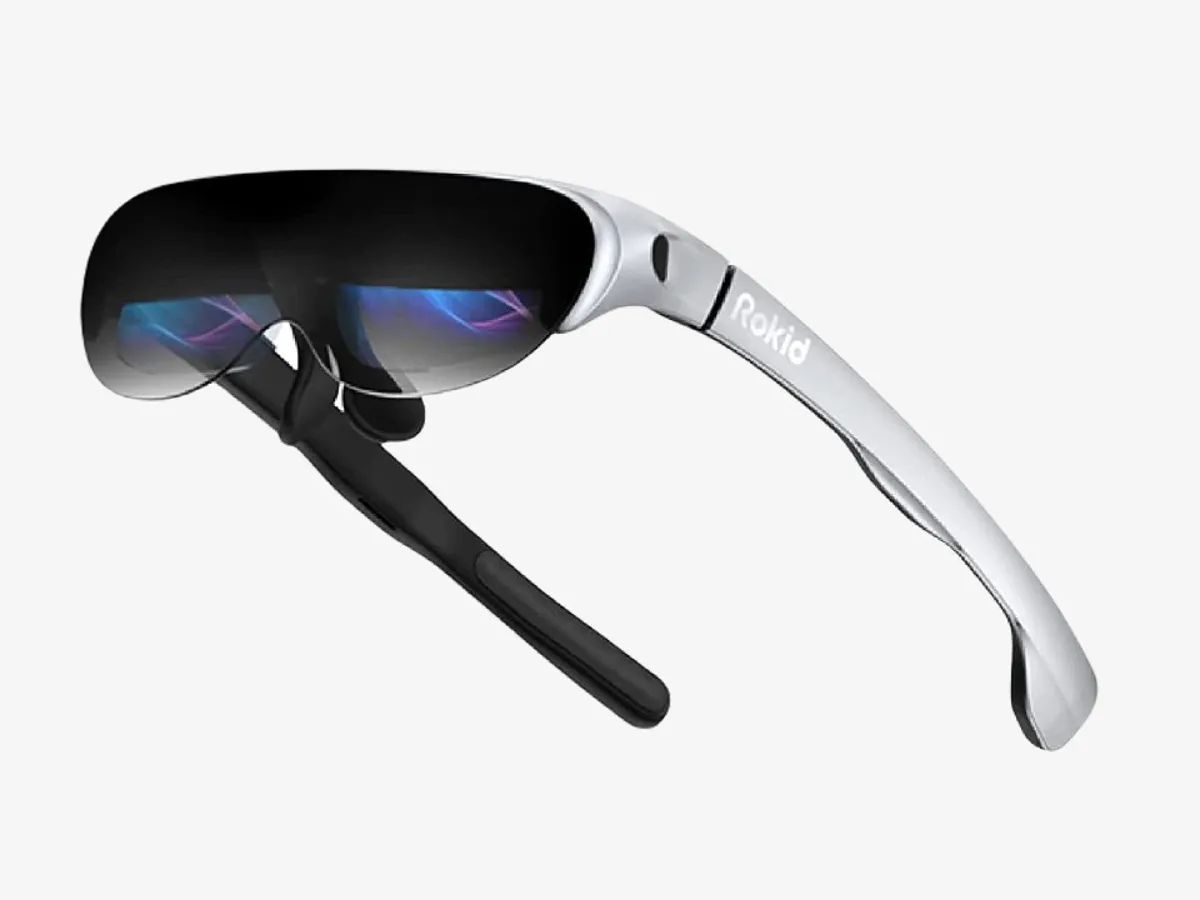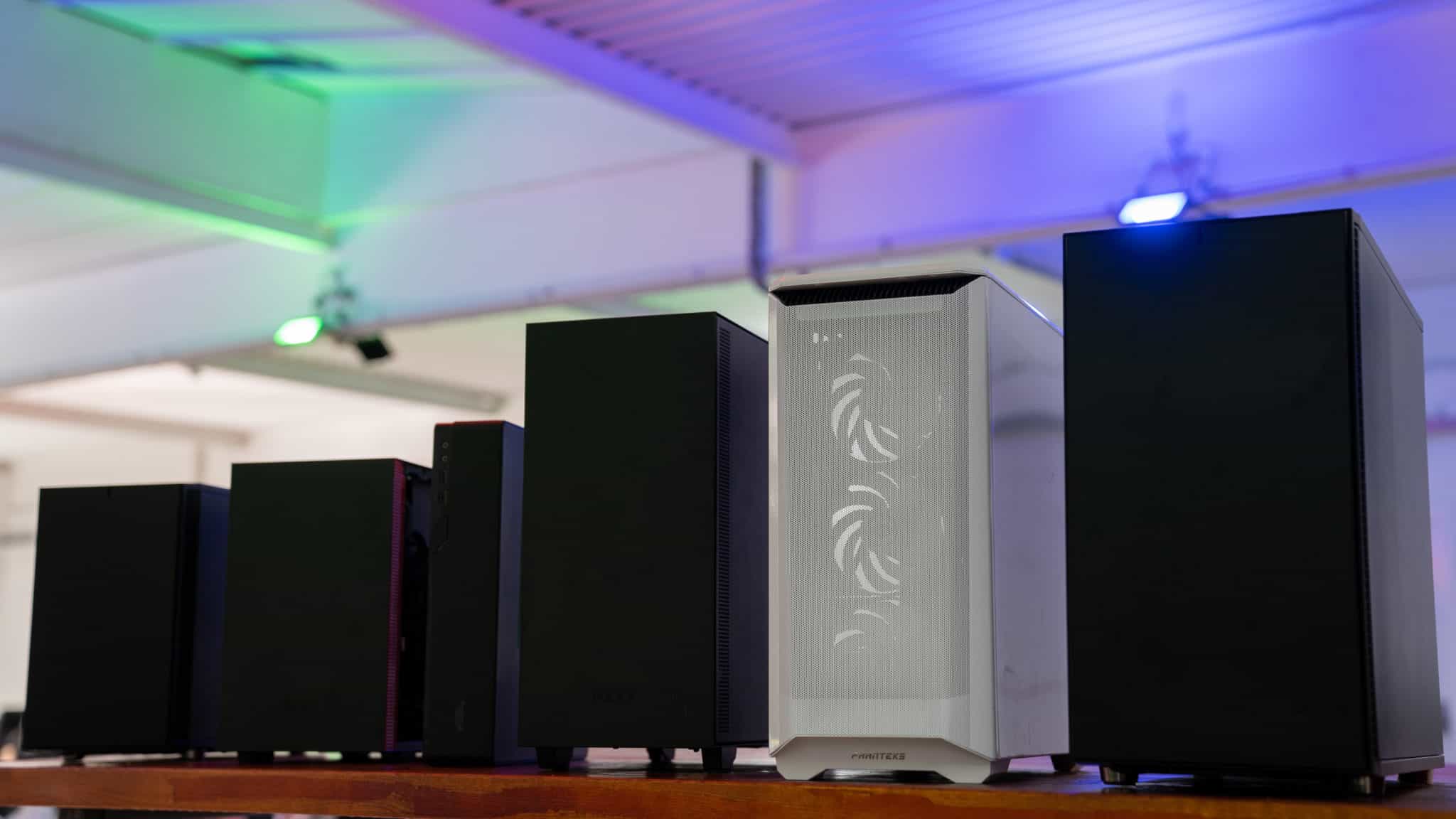What Does CompTIA Call A PC Case Built For Home Theater?
A PC case built specifically for home theater systems is commonly referred to as an HTPC case, which stands for Home Theater Personal Computer case. CompTIA, the leading IT industry association, also recognizes and uses this term to describe such cases. An HTPC case is designed to seamlessly blend with the aesthetics of a home theater setup while providing ample space for housing the necessary components of a PC.
HTPC cases are designed with various features to cater to the unique needs of a home theater PC. These cases are typically sleek and compact, making them ideal for placement in entertainment centers and living rooms. They often come in stylish designs that resemble audiovisual components like DVD players or stereo receivers.
CompTIA acknowledges the importance of HTPC cases in the growing trend of home theater PC setups. As a result, they have included specific sections and certifications related to HTPC cases in their training materials and exams. This recognition highlights the significance of these specialized cases in the evolving landscape of home entertainment technology.
By using an HTPC case in your home theater setup, you can enjoy the benefits of a dedicated PC for media playback, streaming, gaming, and more, while maintaining a sleek and integrated look for your entertainment system. These cases provide efficient cooling options, cable management solutions, and easy access to the internal components for upgrades and maintenance.
In summary, when referring to a PC case built for home theater systems, CompTIA recognizes and uses the term HTPC case, which stands for Home Theater Personal Computer case. These cases are specifically designed to blend seamlessly with the aesthetics of a home theater setup while providing the necessary space for housing PC components. Using an HTPC case in your home theater PC setup offers various benefits and adds a touch of style to your entertainment system.
Introduction
In the era of digital media and streaming services, home theaters have become increasingly popular. People are now looking for ways to create immersive entertainment experiences right in their own homes. One essential component of a home theater PC setup is the PC case built specifically for this purpose.
A PC case for a home theater, also known as an HTPC case, serves as the housing for the various components of a personal computer that is used for media playback, streaming, and gaming. These cases are designed to seamlessly blend with the aesthetics of a home theater setup, providing both functionality and style.
CompTIA, the leading IT industry association, recognizes the importance of HTPC cases in the growing trend of home theater PC systems. A specific term used by CompTIA to describe these cases is the Home Theater Personal Computer case (HTPC case). By understanding the unique requirements of a home theater setup, HTPC cases are created to meet the demands of this specialized environment.
When it comes to a home theater PC case, there are various factors to consider, such as the size, design, cooling capabilities, and compatibility with different components. Popular brands and models offer a wide range of options to suit different preferences and requirements. From compact and sleek designs to cases with advanced cooling systems and convenient cable management solutions, there are options available to cater to every need.
This article will delve into the world of HTPC cases, exploring the benefits of using them in a home theater setup and providing guidance on how to select the right case for your needs. Additionally, we will discuss the top features to look for in an HTPC case and provide insights into the process of installing and maintaining it within your entertainment system.
Definition of a Home Theater PC Case
A home theater PC (HTPC) case is a specialized computer case designed specifically for housing the components of a personal computer that is used in a home theater setup. These cases are designed to seamlessly integrate into the aesthetics of a home theater system while providing the necessary functionality and performance for media playback, streaming, and gaming.
An HTPC case differs from a regular computer case in its design and features. It is typically sleek and compact, resembling audiovisual components like DVD players or stereo receivers, to blend seamlessly with other home theater equipment. The case is often designed to be placed horizontally or vertically to fit into various spaces, such as entertainment centers or living room shelves.
One important aspect of an HTPC case is its ability to accommodate the necessary components for a home theater PC, including the motherboard, CPU, graphics card, storage drives, and power supply unit. These cases are designed to provide ample space and proper airflow to ensure optimal performance and cooling for the internal components.
Another key feature of HTPC cases is their connectivity options. They often come equipped with front and rear USB ports, audio jacks, and HDMI ports, making it easy to connect various peripherals and devices, such as game controllers, headphones, and external storage devices.
To ensure a quiet and enjoyable home theater experience, HTPC cases also incorporate features for noise reduction. These may include the use of sound-dampening materials, fan insulation, and the placement of fans in strategic locations to minimize noise levels.
In summary, a home theater PC case, or HTPC case, is a specialized computer case designed specifically for use in a home theater setup. It is designed to blend seamlessly with the rest of the audiovisual equipment while providing the necessary space, functionality, and connectivity options for the components of a home theater PC. These cases prioritize performance, cooling, and noise reduction to deliver an optimal viewing and gaming experience in the comfort of your own home.
Benefits of Using a Home Theater PC Case
Using a home theater PC (HTPC) case in your entertainment setup offers numerous benefits that enhance your viewing, streaming, and gaming experiences. Let’s explore some key advantages of using an HTPC case:
- Sleek Integration: HTPC cases are designed to seamlessly blend with the aesthetics of your home theater system, creating a cohesive and visually appealing setup. Their sleek and compact designs resemble audiovisual components, making them a stylish addition to your entertainment center.
- Space Efficiency: HTPC cases are often compact and efficiently designed, allowing you to save space in your entertainment area. Their smaller form factor makes them ideal for placement in tight spaces, such as shelves or cabinets.
- Optimal Performance: HTPC cases are specifically engineered to support the components of a home theater PC. They provide sufficient space and proper airflow to keep the internal components cool, ensuring optimal performance during media playback, streaming, and gaming.
- Customizability: HTPC cases offer flexibility for customization. You can choose the components that best suit your needs and preferences, such as the motherboard, CPU, graphics card, and storage options. This allows you to tailor your home theater PC to deliver the performance and functions you desire.
- Connectivity Options: HTPC cases are equipped with various connectivity options, including USB ports, audio jacks, and HDMI ports. These versatile options allow you to easily connect peripherals and devices, such as game controllers, headphones, and external storage devices.
- Noise Reduction: HTPC cases prioritize noise reduction to provide a quiet and immersive home theater experience. They incorporate features like sound-dampening materials, strategic fan placement, and fan insulation, effectively minimizing noise levels and ensuring an uninterrupted viewing and gaming experience.
- Upgradeability: HTPC cases often offer easy access to the internal components of your home theater PC, allowing for effortless upgrades and maintenance. This ensures that you can keep up with technological advancements and enhance the performance of your system over time.
By using an HTPC case, you can enjoy the benefits of a dedicated PC for media playback, streaming, and gaming, while maintaining a sleek and integrated look for your entertainment system. These cases provide efficient cooling, customization options, connectivity, and noise reduction features that enhance the overall home theater experience.
Factors to Consider when Choosing a Home Theater PC Case
When selecting a home theater PC (HTPC) case, it’s essential to consider various factors to ensure that it meets your specific requirements and enhances your overall entertainment experience. Here are some key factors to consider when choosing an HTPC case:
- Size and Form Factor: Consider the dimensions and form factor of the case to ensure it fits seamlessly into your entertainment setup. Measure the available space and choose a case that will fit comfortably without overcrowding your shelves or cabinets.
- Design and Aesthetics: HTPC cases come in various designs, from sleek and minimalist to elaborate and eye-catching. Choose a design that matches your personal style and complements the rest of your home theater equipment.
- Compatibility: Ensure that the HTPC case is compatible with the components you plan to use. Check the maximum supported motherboard size, the number of expansion slots, and the dimensions of the cooling solutions to ensure a proper fit and optimal performance.
- Cooling Options: Consider the cooling capabilities of the case. Look for features like sufficient ventilation, fan mounts, and support for liquid cooling if you require enhanced cooling for your components.
- Noise Reduction: If minimizing noise is a priority for you, opt for an HTPC case that incorporates noise reduction features. This may include sound-dampening materials, fan insulation, and proper cable management to reduce noise interference.
- Connectivity: Check the connectivity options of the case, such as USB ports, audio jacks, and HDMI ports. Ensure that the case provides sufficient connectivity for your peripherals and devices, allowing you to easily connect and expand your home theater PC setup.
- Storage Options: Consider the storage capacity and options offered by the HTPC case. Look for drive bays and mounting options for hard drives or solid-state drives, ensuring that you have ample space for storing your media files and games.
- Build Quality: Assess the overall build quality and durability of the HTPC case. Look for cases made from high-quality materials and sturdy construction that can withstand the demands of your home theater environment.
- Price and Budget: Determine your budget for an HTPC case and compare prices across different brands and models. Consider the features and specifications offered by each case to find the best balance between price and performance.
By considering these factors, you can select an HTPC case that not only fits your specific requirements but also enhances your home theater PC experience. Remember to prioritize factors like size, design, compatibility, cooling options, noise reduction, connectivity, storage, build quality, and budget to make an informed decision when choosing your HTPC case.
Popular Home Theater PC Case Brands and Models
When it comes to choosing a home theater PC (HTPC) case, there are several popular brands and models known for their quality, design, and functionality. Here are a few noteworthy options:
- SilverStone Technology: SilverStone offers a wide range of HTPC cases known for their sleek designs and excellent build quality. Their Grandia series, such as the Grandia GD09 and GD10, feature a compact form factor, support for full-size ATX motherboards, efficient cooling options, and ample storage space.
- Fractal Design: Fractal Design is known for its stylish and minimalist HTPC cases. The Node series, including the Node 202 and Node 304, are popular choices. These cases offer slim profiles, support for mini-ITX motherboards, flexible cooling options, and the ability to accommodate high-end graphics cards and multiple storage drives.
- Antec: Antec’s HTPC cases, such as the Antec NSK2480 and ISK 310, are praised for their compact designs and solid construction. These cases offer compatibility with mini-ITX motherboards, efficient cooling, and multiple drive bays for storage.
- Cooler Master: Cooler Master’s HTPC cases, like the Elite 110 and Elite 130, are popular options for compact and portable setups. These cases support mini-ITX motherboards, offer good ventilation for cooling, and come with versatile storage options.
- SilverStone Technology: SilverStone offers a wide range of HTPC cases known for their sleek designs and excellent build quality. Their Grandia series, such as the Grandia GD09 and GD10, feature a compact form factor, support for full-size ATX motherboards, efficient cooling options, and ample storage space.
- Thermaltake: Thermaltake offers HTPC cases like the Core V1 and Core V21, which provide versatility in terms of form factor and cooling options. These cases support mini-ITX and micro-ATX motherboards, offer modular design for easy customization, and allow for multiple storage configurations.
These are just a few examples of popular HTPC case brands and models in the market. Each brand and model brings its own unique features and design elements, allowing you to choose the one that best suits your requirements and preferences.
It’s important to research and read reviews to find the best fit for your specific needs. Factors such as size, design, compatibility, cooling options, and storage capacity should be considered when selecting an HTPC case. Ultimately, the goal is to find a case that not only enhances the functionality and performance of your home theater PC but also complements the overall aesthetics of your entertainment setup.
Top Features to Look for in a Home Theater PC Case
When choosing a home theater PC (HTPC) case, there are several key features to consider that will enhance the functionality, performance, and aesthetics of your setup. Here are the top features to look for in an HTPC case:
- Sleek Design: Opt for a case with a sleek and stylish design that seamlessly blends with your home theater setup. Look for clean lines, minimalist aesthetics, and a compact form factor that fits seamlessly into your entertainment center or living room.
- Size and Form Factor: Consider the size and form factor of the case to ensure it fits in your chosen space. HTPC cases come in various sizes, including mini-ITX, micro-ATX, and full ATX, so choose the one that suits your desired components and fits comfortably in your setup.
- Optimal Cooling: Look for good airflow and ventilation in the case to keep your components cool during extended periods of use. Cases with efficient cooling solutions such as strategically placed fans, dust filters, and support for liquid cooling can help maintain optimum performance and prevent overheating.
- Quiet Operation: Consider cases designed for noise reduction and quiet operation. Look for features like sound-dampening materials, fan insulation, and noise-reducing fan mounts to minimize fan noise and create a more enjoyable viewing or gaming experience.
- Flexible Storage Options: Choose a case that offers ample storage options to accommodate your media library and game collection. Look for drive bays or brackets that can support multiple storage drives, such as HDDs or SSDs, and ensure that the case offers convenient and easily accessible storage expansion options.
- Front Panel Connectivity: Check for convenient front panel connectivity options such as USB ports, audio jacks, and HDMI ports. These will allow you to easily connect peripherals, gaming controllers, headphones, external storage devices, and other media sources.
- Easy Installation and Maintenance: Opt for a case that offers ease of installation and accessibility to internal components. Look for features like removable panels, tool-less drive bays, and cable management options that make the installation and maintenance process hassle-free.
- Compatibility: Ensure that the case is compatible with your chosen components, including the motherboard size, graphics card length, and power supply form factor. Double-check the specifications and dimensions of the case to ensure a proper fit and compatibility.
- Cable Management: Look for cases that offer sufficient cable management options. Cable routing features like cutouts, tie-down points, and Velcro straps will help keep your cables organized and prevent clutter, resulting in improved airflow and a cleaner overall look.
- Build Quality: Consider the build quality and durability of the case. Look for cases made from high-quality materials such as aluminum or steel, as they provide better protection for your components and enhance the longevity of your HTPC setup.
By prioritizing these features, you can find an HTPC case that not only meets your functional requirements but also enhances the overall aesthetics and performance of your home theater PC. Remember to consider factors such as design, size, cooling, noise reduction, storage options, connectivity, ease of installation, compatibility, cable management, and build quality when selecting the perfect HTPC case for your needs.
How to Install a Home Theater PC Case in Your Entertainment System
Installing a home theater PC (HTPC) case in your entertainment system may seem daunting, but with the right steps and precautions, it can be a straightforward process. Here’s a step-by-step guide on how to install an HTPC case:
- Preparation: Gather all the necessary tools, including a screwdriver, thermal paste (if required), and zip ties for cable management. Make sure you have a clean and well-lit workspace.
- Choose the Location: Select a suitable location for your HTPC case within your entertainment system. Ensure there is adequate airflow and ventilation in the chosen area.
- Prepare the Components: Gather your computer components, including the motherboard, CPU, RAM, storage drives, and any additional expansion cards, and ensure they are compatible with the HTPC case.
- Remove Side Panels: Depending on the case design, remove the necessary side panels to gain access to the interior. Typically, HTPC cases have one or two removable side panels secured by screws.
- Install the Motherboard: Place the motherboard into the case, aligning it with the pre-installed motherboard standoffs or screw holes. Secure the motherboard by screwing it into place, ensuring it is secure and mounted correctly.
- Install Storage Drives: Install your storage drives, such as HDDs or SSDs, into their designated drive bays or brackets within the case. Secure them in place using screws or other mounting mechanisms provided.
- Install Other Components: Install any additional components, such as the CPU, RAM, graphics card, and expansion cards, following their respective installation instructions. Apply thermal paste to the CPU if required.
- Connect Cables: Connect the necessary cables from your components to the corresponding connectors on the motherboard, including power cables, data cables, and front panel connectors. Use zip ties or cable management options within the case for a neat and organized cable layout.
- Organize and Route Cables: Ensure that all cables are neatly routed and properly managed within the case. This helps maintain good airflow and prevents cable interference with the components.
- Replace Side Panels: Once you have completed the installation and cable management, carefully place and secure the side panels back onto the case, ensuring they are properly aligned and secure.
- Test and Power On: Double-check all connections and ensure that everything is properly secured before powering on your HTPC. Connect the necessary peripherals such as a monitor, keyboard, and mouse, and power on the system to confirm that everything is working correctly.
It is important to follow the installation instructions provided by the manufacturer of your specific HTPC case and components. If you are unsure about any step or encounter difficulties during the installation process, refer to the user manual or seek assistance from technical support.
By following these steps and taking the necessary precautions, you can successfully install your HTPC case and enjoy your custom-built home theater PC setup.
Maintenance and Cleaning Tips for a Home Theater PC Case
Regular maintenance and cleaning of your home theater PC (HTPC) case are essential to ensure the longevity and optimal performance of your system. Here are some tips to help you keep your HTPC case in excellent condition:
- Dust Prevention: The accumulation of dust can hinder airflow and cause overheating. Place your HTPC case in a location where dust buildup is minimal, and consider using dust filters on intake fans to prevent dust from entering the case.
- Regular Cleaning: Every few months, or as needed, clean the exterior of your HTPC case using a soft, lint-free cloth. Gently wipe the surfaces to remove any dust or fingerprints. Avoid using abrasive materials or harsh chemical cleaners that may damage the case.
- Cleaning the Interior: Turn off and unplug your HTPC before cleaning the internal components. Use compressed air or a small handheld vacuum cleaner to remove dust from the interior, paying close attention to the fans, heatsinks, and vents. Avoid touching the components directly to prevent static electricity damage.
- Cable Management: Regularly check the cables inside your HTPC case and ensure they are properly connected and secured. Reorganize and reroute cables if necessary to maintain good airflow and prevent cable interference with fans or other components.
- Monitor Component Temperatures: Use software monitoring tools to keep an eye on the temperatures of your CPU, GPU, and other critical components. If you notice unusually high temperatures, check for any dust buildup in the cooling system and fan filters and clean them if necessary.
- Upkeep Hard Drives: Keep an eye on the health of your storage drives and monitor their temperatures. Ensure proper ventilation and cooling for your hard drives to prevent overheating, which could lead to data loss or hardware failure.
- Software Updates: Regularly update device drivers, BIOS, and firmware to ensure compatibility and maintain system stability. Check the manufacturer’s websites for the latest updates for your specific components.
- Protection: Consider using surge protectors or uninterruptible power supply (UPS) systems to protect your HTPC against power surges and electrical fluctuations. These devices can safeguard your system from potential damage caused by unstable electrical environments.
- System Backup: Create periodic backups of your important data and files to safeguard against data loss or system failures. Store backups in a separate location or on external drives for added protection.
- Professional Maintenance: If you are not familiar with internal computer maintenance, consider seeking professional help for more complex tasks, such as cleaning the cooling system or applying thermal paste. Professional technicians can ensure proper handling and maintenance of your HTPC.
By following these maintenance and cleaning tips, you can keep your HTPC case in optimal condition, prolong its lifespan, and ensure the reliable performance of your home theater PC setup for years to come.
Conclusion
Choosing the right home theater PC (HTPC) case is essential for creating an immersive and functional entertainment experience in your own home. Consider factors such as size, design, cooling, noise reduction, storage options, connectivity, ease of installation, compatibility, cable management, and build quality to find the perfect HTPC case for your needs. Popular brands like SilverStone Technology, Fractal Design, Antec, Cooler Master, Thermaltake, and more offer a wide range of options to suit various preferences and requirements.
Once you have selected your HTPC case, follow the installation steps carefully to ensure a successful setup. Pay attention to cable management, adequate cooling, and compatibility with your chosen components. Regular maintenance and cleaning are crucial for keeping your HTPC case in good condition and optimizing performance. Prevent dust buildup, clean the exterior periodically, and use compressed air or vacuum to clean the interior components. Regularly monitor component temperatures, upkeep your hard drives, and update software to maintain stability and data integrity.
By considering all these factors and following the proper maintenance guidelines, you can enjoy a seamless and immersive home theater PC experience. Your HTPC case will not only enhance the functionality and performance of your system but also add a touch of style and elegance to your entertainment setup.







